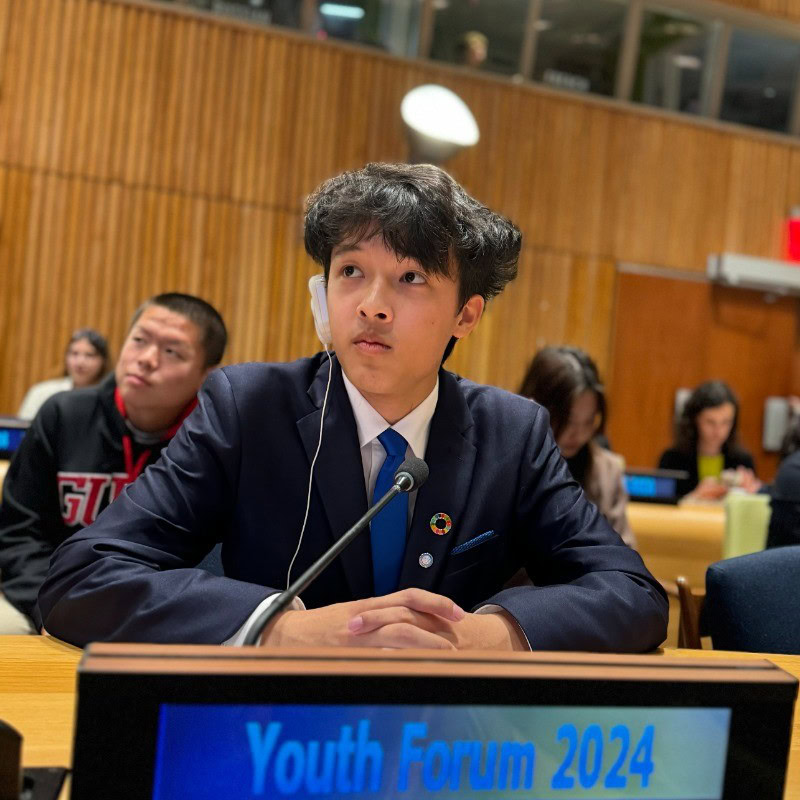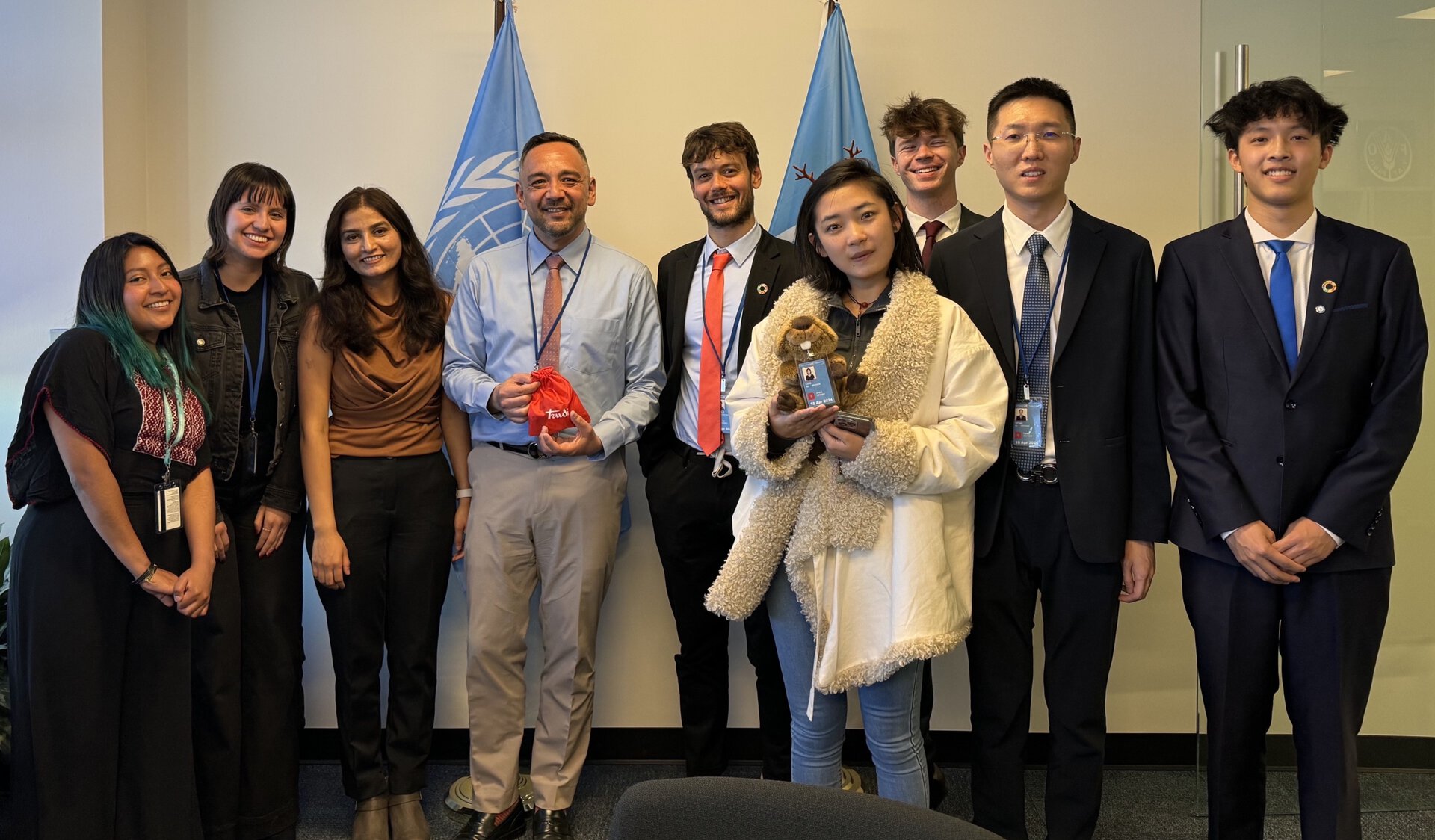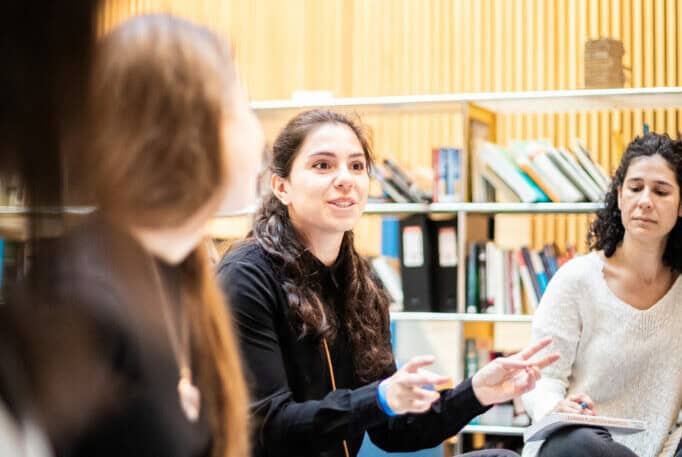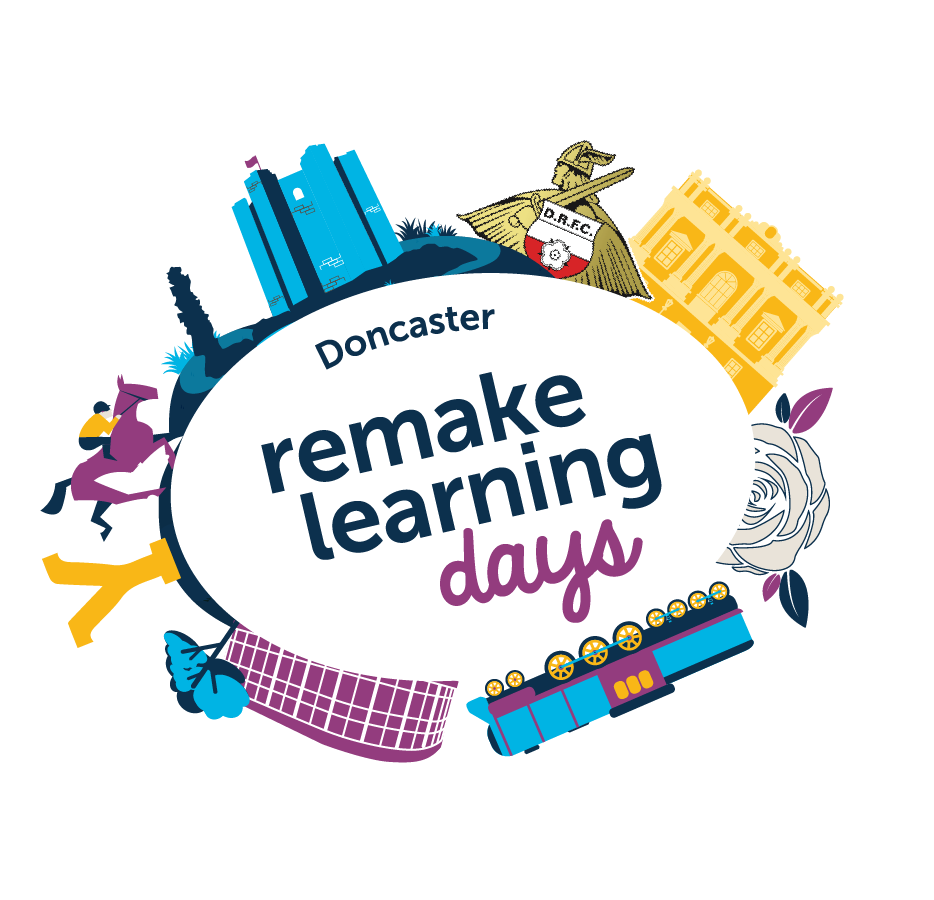Who are you, and what motivates you as a LearningPlanet youth fellow?

I’m Harrison Tang, a 17-year-old Taiwanese-Canadian youth advocate for food safety and security.
As a Learning Planet youth fellow, I want to amplify youth voices in discussion spaces and collaborate on community projects. My journey with food safety and security began with personal experiences managing dietary control due to my allergies, Tourette’s syndrome, and nasal rhinitis symptoms.
At the Institute, I found many peers with similar interests in this field. Some investigate optimal methods for soil utilisation in crop growth, while others organise local food drives to combat hunger. They have inspired me to advance my project, and I have enjoyed meeting, discussing, and collaborating with them on and off our Youth Fellow weekly calls.
How could you summarise your experience at ECOSOC?
My experience at ECOSOC was mixed.
Participating in the forum and engaging with government officials, member-state delegations, and youth partners at UN headquarters during plenary sessions and side events was an incredible honour. I’ve participated in many closed sessions where we discussed specific policies that are or will be implemented at local levels. I appreciated witnessing tangible actions that can move us toward the Sustainable Development Goals (SDGs).

However, the forum was not without its challenges. Often, youth were still left out of discussions, and our participation was viewed as tokenistic rather than substantive. This was particularly evident in the lack of voluntary reports from governments tracking their progress toward the SDGs. While countries like Brazil and Mexico set a good example, many others did not. Repeated calls to action were common, while concrete policy impacts were less frequently mentioned. Youth Delegates had few opportunities to intervene from the floor, which was a significant barrier to meaningful participation.
Participating in the forum and engaging with government officials, member-state delegations, and youth partners at UN headquarters during plenary sessions and side events was an incredible honour. I’ve participated in many closed sessions where we discussed specific policies that are or will be implemented at local levels. I appreciated witnessing tangible actions that can move us toward the Sustainable Development Goals (SDGs).
However, the forum was not without its challenges. Often, youth were still left out of discussions, and our participation was viewed as tokenistic rather than substantive. This was particularly evident in the lack of voluntary reports from governments tracking their progress toward the SDGs. While countries like Brazil and Mexico set a good example, many others did not. Repeated calls to action were common, while concrete policy impacts were less frequently mentioned. Youth Delegates had few opportunities to intervene from the floor, which was a significant barrier to meaningful participation.
Despite these challenges, I am filled with hope and optimism about what youth changemakers can achieve in these uncertain times. At the Forum, we rigorously networked, and I found many collaboration partners and made great friends. Events like the Youth Blast, Closing Party, and side conferences helped foster these connections. I was impressed by the fantastic missions many are committed to and the progress achieved on grassroots levels.
The World Food Forum lunch briefing and side event were particularly memorable. There, I had the opportunity to discuss starting a new hackathon for food waste with the team. This hackathon, which we plan to launch in October, will provide a platform for youth to present their innovative projects and receive grants to turn their visions into reality. By empowering youth to tackle issues like food waste, we can make a significant contribution to the SDGs.
Overall, the Forum was a great experience for witnessing policymaking and youth discussions from different perspectives. Only by working together will we be able to solve the greatest challenges of our generation.
What would you hope to see at future UN events (notably Summit of the Future)?
At future UN events, notably the Summit of the Future, I hope to see more opportunities for youth to engage with UN Specialised Agencies and participate in the policy-making process on tangible levels.
I also hope to see more opportunities for youth and delegates from civil or non-profit sectors to speak on the floor during plenary discussions. I look forward to the UN implementing policies that ensure equal participation for all, allowing everyone to voice their opinions and observe from the main chamber where the event is held. Removing overflow rooms, if present, would prevent issues like those at ECOSOC, where many struggled to enter the venue.
At the Summit of the Future, we are racing against time to reach the SDGs by 2030. Therefore, things must be done differently. I hope to see action groups under each SDG and corresponding workshops where youth activists with similar interests can gather to discuss potential collaborations. By forming strong connections between grassroots and regional initiatives, we can achieve greater impact and outcomes at the Summit.
How could they maximise the voices of youth?
One crucial policy change that could significantly enhance youth engagement is to allow high school students, university students, and youths ages 18 to 35 to intern with UN specialised agencies or related foundations. These organizations shape the actions of nation-states and offer support for youth projects. By having more youth interns, we can address problems from the perspective of the younger generations. This is not just a suggestion but a necessity, as youth bear a greater responsibility for the future of sustainable development.
Additionally, I would like to highlight the issue of visa problems that many encountered when entering the United States for the ECOSOC Youth Forum and other conferences. This not only hampers the participation of many talented youth but also limits the diversity of voices that can be heard. Therefore, I propose that these events be hosted outside the United States, potentially in countries of the Global South. This would not only make them more accessible for youth but also ensure a more diverse and inclusive representation of global youth voices.

